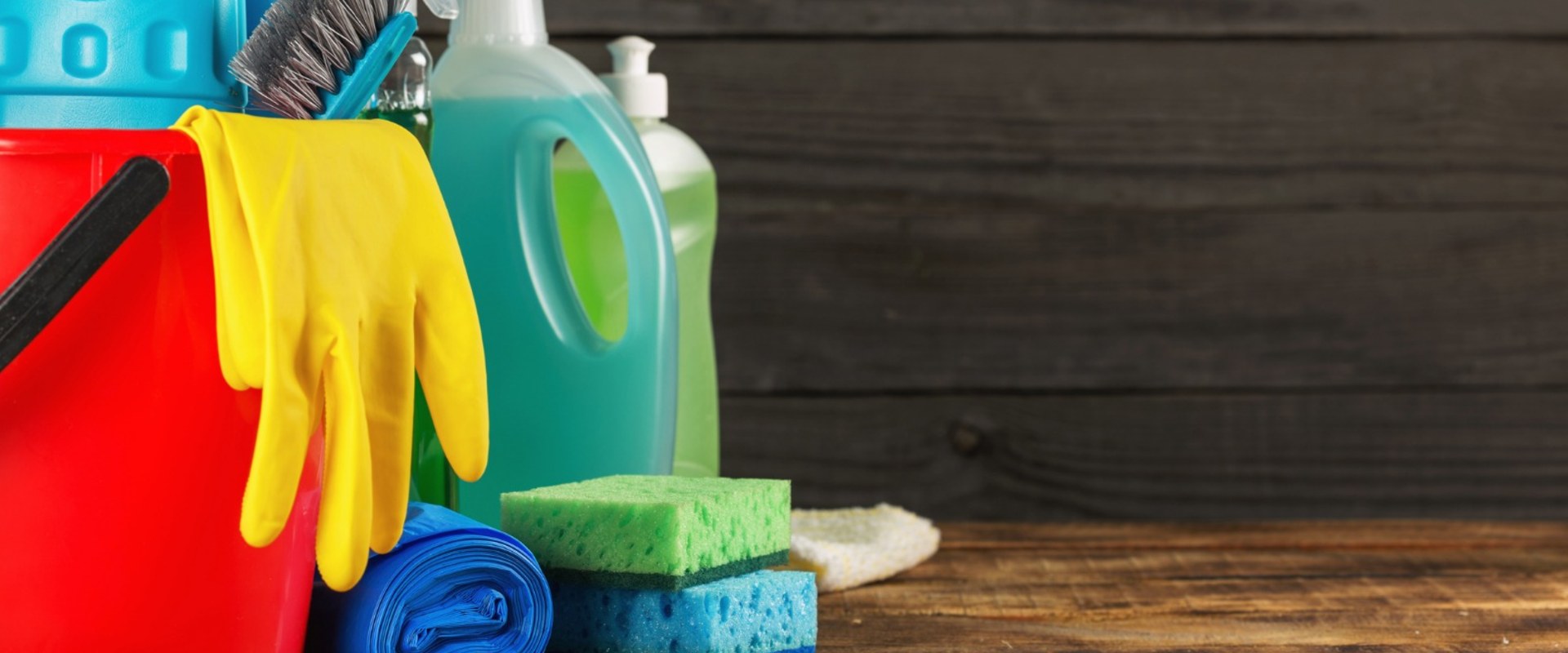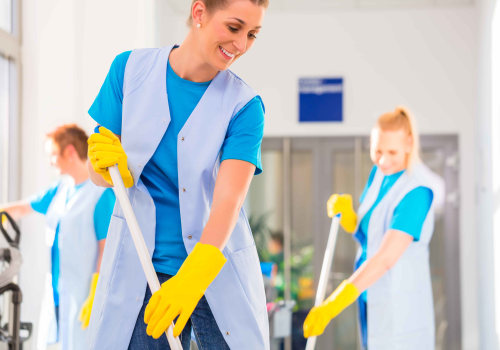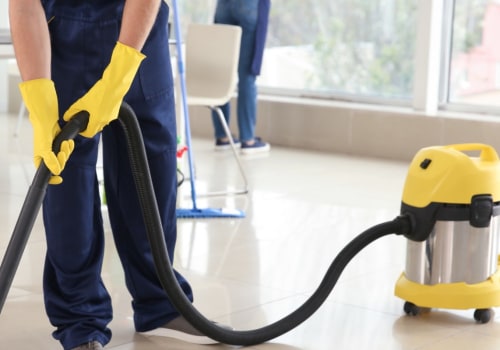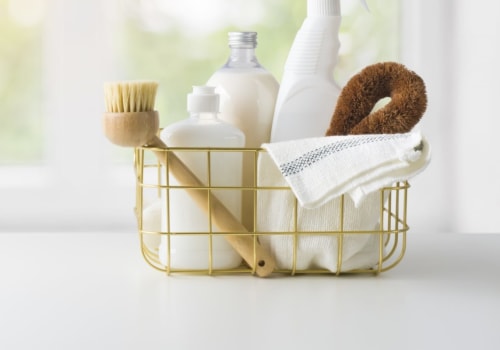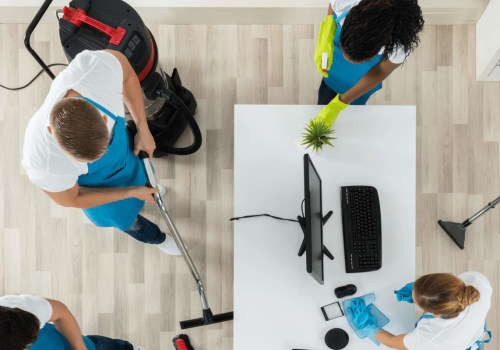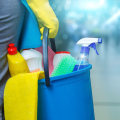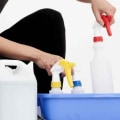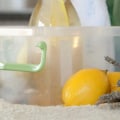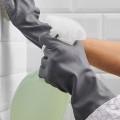Detergents are the most common type of cleaning agent and are used in domestic and commercial kitchens. They work by breaking up dirt or dirt, making it easy to remove them. The detergents used in commercial kitchens are usually synthetic detergents made from petroleum products and perhaps in the form of powder, liquid, gel or crystals. Degreasers are sometimes referred to as solvent-based cleaners and are used to remove grease from surfaces such as oven surfaces, countertops, and grill splashes.
In the past, methylated alcohols or turpentine were commonly used as degreasers. Most food companies are now trying to use non-toxic and non-smoking degreasers in their operations to prevent chemical contamination. Abrasives are substances or chemicals that rely on the action of rubbing or scrubbing to clean dirt from hard surfaces. In commercial kitchens, abrasives are generally used to clean floors, pots and pans.
Abrasives should be used with care, as they can scratch certain types of materials used in kitchen equipment, such as plastic or stainless steel. Abrasives are most commonly used in deep cleaning of commercial kitchens to clean floors, pots and pans from accumulated grease. They are effective in this type of work because they contain substances or abrasive components that, when rubbed, cut through the layers of dirt and grease to remove them and lift them from hard surfaces. Abrasives usually have a gritty consistency that can cause scratches on some surfaces.
Therefore, they should be used with care on materials such as plastic or stainless steel. Acid cleaning agents are the most powerful types of cleaning agents available and should therefore be used with care and with appropriate safety equipment. These cleaning agents are mainly used to remove rust and mineral deposits from surfaces and equipment. Acids must be diluted correctly because, if they are not, they can be highly corrosive and even potentially poisonous.
Degreasers, or solvent cleaners, are most often used to remove accumulated grease from kitchen surfaces. Commonly affected areas include oven covers, exhaust pipes, counters, and grill splashes. In a commercial kitchen environment, it is important to use only non-toxic and non-smoking degreasers to avoid possible problems such as chemical contamination. Detergents are the safest and most common type of cleaning agent used in commercial kitchens.
Combined with warm water, detergents break and loosen dirt or dirt, so they can be washed. Most commercial kitchens use synthetic detergents made from petroleum products that come in the form of powder, liquid, gel or crystals. They are of two basic types: alcohol-based, water-based. Alcohol-based brighteners contain a mixture of mainly natural waxes, dispersed in an alcohol solvent.
They can be in paste or liquid form and contain silicon, but too high a silicon content makes the floor slippery. The polish build-up can be removed by losing the wax finish with alcohol and a slight abrasion, and then picking up the loose wax with a damp cloth mop. It is suitable for floors that are damaged by water, such as wood, cork, linoleum and magnesite. Water-based brighteners are emulsions in which fine particles of natural and synthetic waxes are dispersed in water.
They are suitable for use on thermoplastic, rubber, PVC, asphalt and combination floors, as alcohols can affect them. They can also be used on sealed floors made of wood, cork, magnesite and linoleum. Water-based polishes are always liquid, but can be fully polishable, semi-polishable or dry glossy. Accumulated polish can be removed by loosening the wax synthetic resin with hot water and alkali, without detergent.
When it comes to cleaning chemicals, don't settle for second best. It is essential to choose commercial cleaning products with the strength to meet the demands of the professional catering industry. Whether you're planning a deep clean or daily maintenance, these powerful cleaning agents will ensure maximum cleanliness and hygiene with minimal effort. If you're looking for kitchen cleaning products, food-grade cleaning chemicals are safe to use in any food preparation area where food is handled.
But there is a specialized cleaning agent available to specifically suit any task from the front or back of the house, from floors and surfaces to toilets and bathrooms. For best results, use your cleaning chemicals with these cleaning products and remember to protect yourself with safety work clothes. Regardless of which of the 4 categories of cleaning products you choose to use, it is important to know that cleaning alone is not enough to remove bacteria, viruses and fungi from your kitchen. Some examples of these cleaners include the Weiman jewelry cleaner, the HOROCD watch cleaning solution &, even Holland Hallmark's metal plate cleaning solution.
We explain the science behind some of the most popular cleaning methods and tools, so you can clean smarter, not harder. For special types of precious metals, especially those used for luxury watches and high-end jewelry, special cleaning agents are usually used to clean them and protect them from the elements. Different cleaning chemicals are used depending on the item to be cleaned, the method of cleaning and the type of dirt found on the item. .
.
